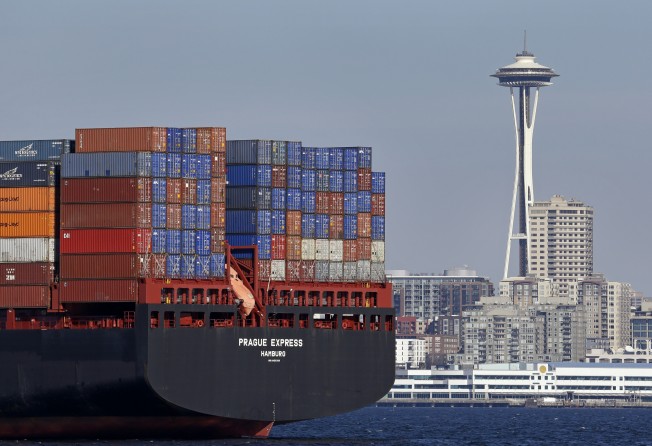China’s toolbox to turn the retaliatory screws in trade tensions with the United States
Beijing has various ways to hit back if frictions escalate but it has been careful so far to not react too quickly, observers say

China can choose from a toolbox of retaliatory options, including punitive duties, if a trade war breaks out between the world’s two biggest economies, sources and analysts said.
A source close to China’s Ministry of Commerce said Beijing would not shy away from confrontation if provoked.
“The retaliation list includes initiating more investigations into US companies operating in China, conducting probes more stringently and slapping punitive duties,” the source said.
The assessment comes as the United States ramps up rhetoric about what it says is China’s unfair trade practices and policies.
The administration of US President Donald Trump has branded China as a strategic rival and launched trade investigations into Chinese exports such as solar panels, steel and aluminium.
Trump approved tariffs of up to 30 per cent on Chinese solar panels late on Monday and could impose quotas and duties on other products, depending on the outcome of the investigations.
The US Congress is also working to expand coverage of national security to strengthen investment screening of foreign companies, especially from China.
Timothy Stratford, a former US assistant trade representative, said there were a number of things that foreign companies could be worried about in terms of retaliatory action from China.
“Some foreign companies may have a more difficult time getting licences to engage in business, or they may find themselves subject to more stringent compliance investigations launched against them,” Stratford, a Beijing-based managing partner at law firm Covington and Burling, said.
Sun Lei, a Beijing-based lawyer with global law firm Dentons, said China could also file complaints with the World Trade Organisation but a result would take years and might not be effective.
“If escalation continues, China may cut purchases of agricultural products such as soybeans and beef from the US,” Sun said.
Other options for Beijing were to call off talks on the US$250 billion of commercial deals signed during Trump’s visit in Beijing in November, and to look to other countries for imports.
A former US diplomat said China would be careful to keep trade rows and cooperation on security separate.
China’s trade surplus with the US, which Trump has failed to reverse, widened to a record US$276 billion last year, accounting for two-thirds of China’s total.
Analysts said much of the disparity was structural due to US export restrictions on China.
Sun said it was unrealistic for China to cut exports to the US to narrow the imbalance, but China could use “indirect” means such as lowering export tax refunds for Chinese companies.
A US business representative said “faster and stronger” expansion of market access in China would go a long way to easing the anger in Washington.
So far China has remained restrained in the face of Trump’s rhetoric, a tactic Stratford said was a wise move.
“The Chinese government has been right to hold off and not to react too quickly to a particular statement, but instead wait to see how the statements evolve into systemic and overarching polices,” he said.
The source close to the Commerce Ministry said Beijing was not worried about individual trade probes launched by the US but was alert to the growing protectionism across the Pacific.
“The Chinese government doesn’t want the trend of US trade actions to exacerbate domestic conflicts as top leaders view stability as a top priority,” the source said.